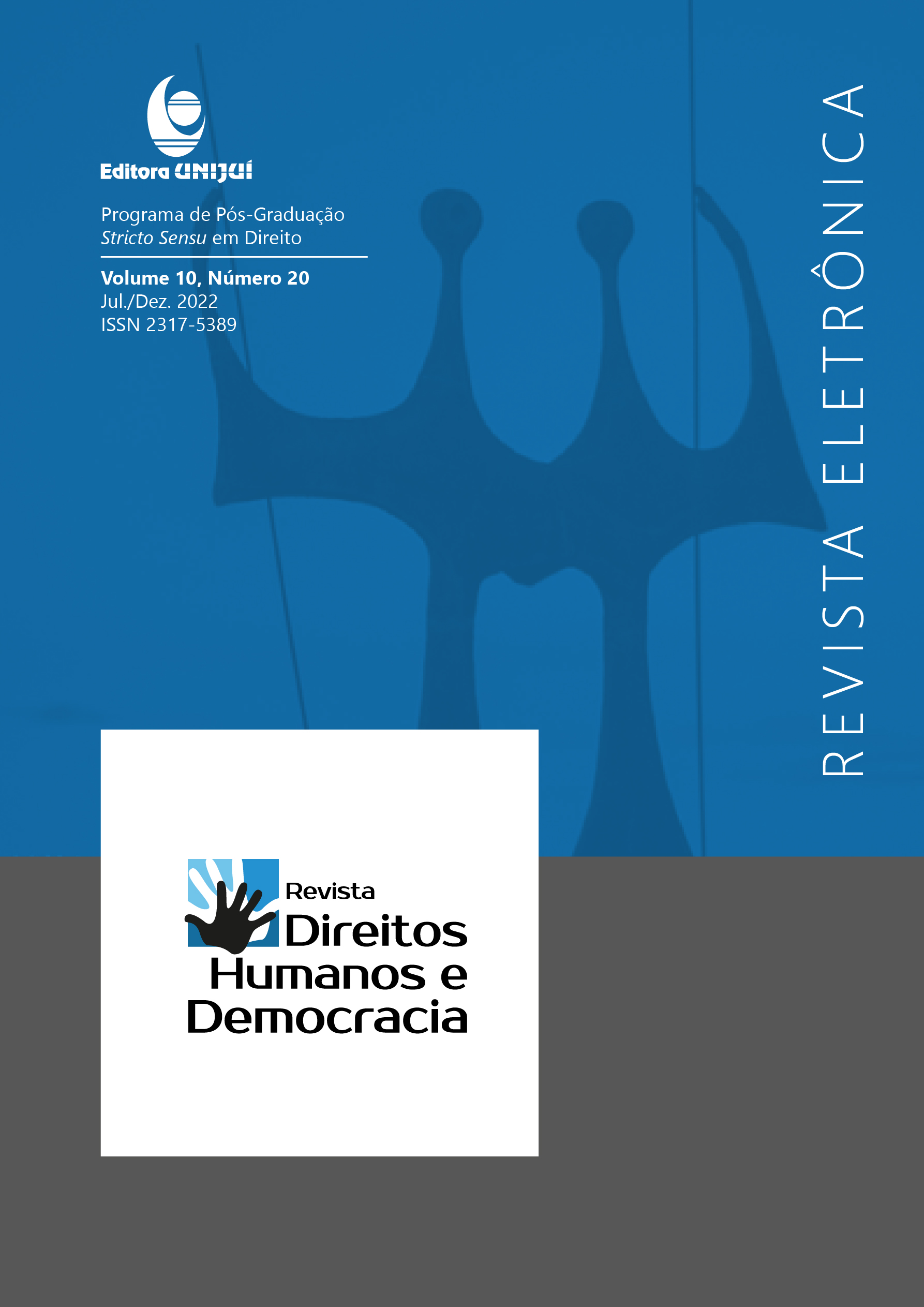Critical analysis of the role of the inter-american commission on human rights regarding the guarantee of international jurisdiction and personality rights for the individual
DOI:
https://doi.org/10.21527/2317-5389.2022.20.12562Keywords:
International Jurisdiction, Inter-American Commission on Human Rights, Inter-American Court of Human Rights, Human Rights, Personality RightsAbstract
This article aims to analyze the role of the Inter-American Commission on Human Rights as a way of access by individuals to the jurisdiction of the Inter-American Court of Human Rights, because, as provided for the American Convention on Human Rights, all complaints of human rights violations committed by its States Parties must be submitted before that organ. It is, therefore, a current and relevant theme, since it refers not only to the guarantee of international jurisdiction to the individual, recognized in recent years as a subject of international law, but also to the most important rights for the life and existence of the human person. The method used to reach the desired result is the deductive one, starting from the many normative in force regarding the complex organs that make up the American plan for the defense of human rights, in addition to theoretical-bibliographic research and analysis of scientific articles and teachings authors of International Law. Thus, the effectiveness of the procedure for the international protection of human rights and personality rights within the Inter-American Human Rights System and its Member States is discussed.
Downloads
Published
How to Cite
Issue
Section
License
Copyright (c) 2022 Revista Direitos Humanos e Democracia

This work is licensed under a Creative Commons Attribution 4.0 International License.
By publishing in the Revista Direitos Humanos e Democracia, authors agree to the following terms:
Articles are licensed under the Creative Commons Atribuição 4.0 Internacional (CC BY 4.0), which allows:
Share — copy and redistribute the material in any medium or format;
Adapt — remix, transform, and build upon the material for any purpose, including commercial use.
These permissions are irrevocable, provided the following terms are respected:
Attribution — authors must be properly credited, with a link to the license and indication of any modifications made;
No additional restrictions — no legal or technological measures may be applied that restrict the use permitted by the license.
Notices:
The license does not apply to elements in the public domain or covered by legal exceptions.
The license does not grant all rights required for specific uses (e.g., image rights, privacy, or moral rights).
The journal is not responsible for opinions expressed in the articles, which remain the sole responsibility of the authors. The Editor, with the support of the Editorial Committee, reserves the right to suggest or request modifications when necessary.
Only original scientific articles presenting research results of interest, not previously published or simultaneously submitted to another journal with the same purpose, will be accepted.
References to trademarks or specific products are intended solely for identification purposes and do not imply any promotional endorsement by the authors or the journal.
License Agreement: Authors retain copyright over their articles and grant the Revista Direitos Humanos e Democracia the right of first publication.













